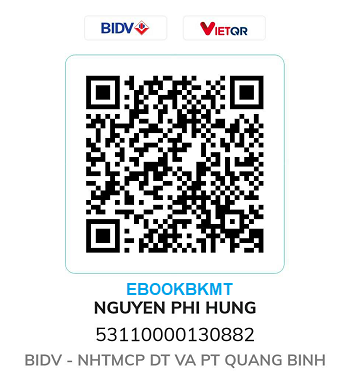Nghiên cứu về thảo luận nhóm và ảnh hưởng của nó đến khả năng nói của học sinh không chuyên ngữ trình độ sau A tại Học viện Khoa học Quân Sự
The study presents an attempt to investigate group work and its impacts on the subsequent individual presentations in the EFL classroom-based context. Oral data from a range of sources including group planning and individual presentations were collected from 16 non-major students at the post elementary level at MSA over a period of ten weeks. The students worked in small groups preparing for oral presentations.
For each topic, two students from two groups were randomly selected to give presentations. Eight group discussions and sixteen individual presentations were selected and analyzed based on language related episodes (LREs) as well as typical features of group interaction and error free clause (EFC). The aims of the study were to explore what actually happens in group planning and whether the students in pre-planning groups perform more accurately and better than those in unplanning groups in terms of tenses, subject-verb agreement and pronouncing morpheme-s in plurality. The results showed that in group discussions students tended to focus on the content of the task, and assisted each other in preparing for the individual presentations. The findings also showed that students in pre-planning groups produced better presentations than those in unplanning groups in terms of tenses, subject-verb agreement and pronouncing morpheme-s in plurality. Since the two activities, group work and individual presentations, are routine tasks at the college where the research had been conducted, the impacts of group planning have important pedagogical implications in organizing group and individual activities in the EFL classroom context.
CONTENTS:
CHAPTER ONE: INTRODUCTION 1
1.1. BACKGROUND AND RATIONALE 1
1.2. SCOPE, OBJECTIVES AND RESEARCH QUESTIONS FOR THE STUDY 3
1.3. METHODS OF THE STUDY 4
1.4. THE DESIGN OF THE STUDY 5
CHAPTER TWO: LITERATURE REVIEW 6
2.1. GROUP DISCUSSION AND ITS ADVANTAGES 6
2.1.1. Definition of group discussion 6
2.1.2. Group work and its benefits from different points of view 7
2.1.2.1. From the psycho-linguistic point of view 7
2.1.2.2. From the socio-linguistic point of view 8
2.1.2.3. From the pedagogical point of view 10
2.2. TASK-BASED PLANNING AND TASK PERFORMANCE 10
2.2.1. Definition of a task and a frame work of task-based instruction 10
2.2.2. Classification of task-based planning 12
2.3. CRITERIA TO ASSESS ORAL LANGUAGE PRODUCTION 15
2.3.1. Fluency 16
2.3.2. Complexity 17
2.3.3. Accuracy 18
CHAPTER THREE: RESEARCH DESIGN 20
3.1. SOME INFORMATION ABOUT THE MILITARY SCIENCE ACADEMY 20
3.2. PARTICIPANTS OF THE STUDY 21
3.3. PROCEDURES 22
3.4. INSTRUMENTATION 24
3.5. DATA COLLECTION 25
CHAPTER FOUR: DATA ANALYSIS 27
4.1. GROUP DATA 27
4.2. INDIVIDUAL PRESENTATION DATA 32
4.3. QUESTIONNAIRES 34
CHAPTER FIVE: FINDINGS 35
5.1. GROUP DISCUSSION 35
5.1.1. Language Related Episodes 35
5.1.2. Turns in group talks. 36
5.1.3. Leadership moves 37
5.2. INDIVIDUAL PRESENTATIONS 38
5.3. QUESTIONNAIRE RESULTS 40
CHAPTER SIX: DISCUSSION AND CONCLUSION 43
6.1. DISCUSSION 43
6.1.1. Research question 1 43
6.1.2. Research question 2 44
6. 2. CONCLUSION 45
References …….……………………………………………………………..…47
Appendix
Observers’ sheet ………………………………………………………………………..
Questionnaire No. 1 ………………………………………………..…….………………
Questionnaire No. 2 ……………………………………………….…………………….
Transcripts of group planning …………………………………………..……………….
Transcripts of individual presentations …………….……………………………………
The study presents an attempt to investigate group work and its impacts on the subsequent individual presentations in the EFL classroom-based context. Oral data from a range of sources including group planning and individual presentations were collected from 16 non-major students at the post elementary level at MSA over a period of ten weeks. The students worked in small groups preparing for oral presentations.
For each topic, two students from two groups were randomly selected to give presentations. Eight group discussions and sixteen individual presentations were selected and analyzed based on language related episodes (LREs) as well as typical features of group interaction and error free clause (EFC). The aims of the study were to explore what actually happens in group planning and whether the students in pre-planning groups perform more accurately and better than those in unplanning groups in terms of tenses, subject-verb agreement and pronouncing morpheme-s in plurality. The results showed that in group discussions students tended to focus on the content of the task, and assisted each other in preparing for the individual presentations. The findings also showed that students in pre-planning groups produced better presentations than those in unplanning groups in terms of tenses, subject-verb agreement and pronouncing morpheme-s in plurality. Since the two activities, group work and individual presentations, are routine tasks at the college where the research had been conducted, the impacts of group planning have important pedagogical implications in organizing group and individual activities in the EFL classroom context.
CONTENTS:
CHAPTER ONE: INTRODUCTION 1
1.1. BACKGROUND AND RATIONALE 1
1.2. SCOPE, OBJECTIVES AND RESEARCH QUESTIONS FOR THE STUDY 3
1.3. METHODS OF THE STUDY 4
1.4. THE DESIGN OF THE STUDY 5
CHAPTER TWO: LITERATURE REVIEW 6
2.1. GROUP DISCUSSION AND ITS ADVANTAGES 6
2.1.1. Definition of group discussion 6
2.1.2. Group work and its benefits from different points of view 7
2.1.2.1. From the psycho-linguistic point of view 7
2.1.2.2. From the socio-linguistic point of view 8
2.1.2.3. From the pedagogical point of view 10
2.2. TASK-BASED PLANNING AND TASK PERFORMANCE 10
2.2.1. Definition of a task and a frame work of task-based instruction 10
2.2.2. Classification of task-based planning 12
2.3. CRITERIA TO ASSESS ORAL LANGUAGE PRODUCTION 15
2.3.1. Fluency 16
2.3.2. Complexity 17
2.3.3. Accuracy 18
CHAPTER THREE: RESEARCH DESIGN 20
3.1. SOME INFORMATION ABOUT THE MILITARY SCIENCE ACADEMY 20
3.2. PARTICIPANTS OF THE STUDY 21
3.3. PROCEDURES 22
3.4. INSTRUMENTATION 24
3.5. DATA COLLECTION 25
CHAPTER FOUR: DATA ANALYSIS 27
4.1. GROUP DATA 27
4.2. INDIVIDUAL PRESENTATION DATA 32
4.3. QUESTIONNAIRES 34
CHAPTER FIVE: FINDINGS 35
5.1. GROUP DISCUSSION 35
5.1.1. Language Related Episodes 35
5.1.2. Turns in group talks. 36
5.1.3. Leadership moves 37
5.2. INDIVIDUAL PRESENTATIONS 38
5.3. QUESTIONNAIRE RESULTS 40
CHAPTER SIX: DISCUSSION AND CONCLUSION 43
6.1. DISCUSSION 43
6.1.1. Research question 1 43
6.1.2. Research question 2 44
6. 2. CONCLUSION 45
References …….……………………………………………………………..…47
Appendix
Observers’ sheet ………………………………………………………………………..
Questionnaire No. 1 ………………………………………………..…….………………
Questionnaire No. 2 ……………………………………………….…………………….
Transcripts of group planning …………………………………………..……………….
Transcripts of individual presentations …………….……………………………………
%20(1).png)

.png)

%20(1)%20(1).png.png)

.png)





%20(1).png)


.png)




Không có nhận xét nào: